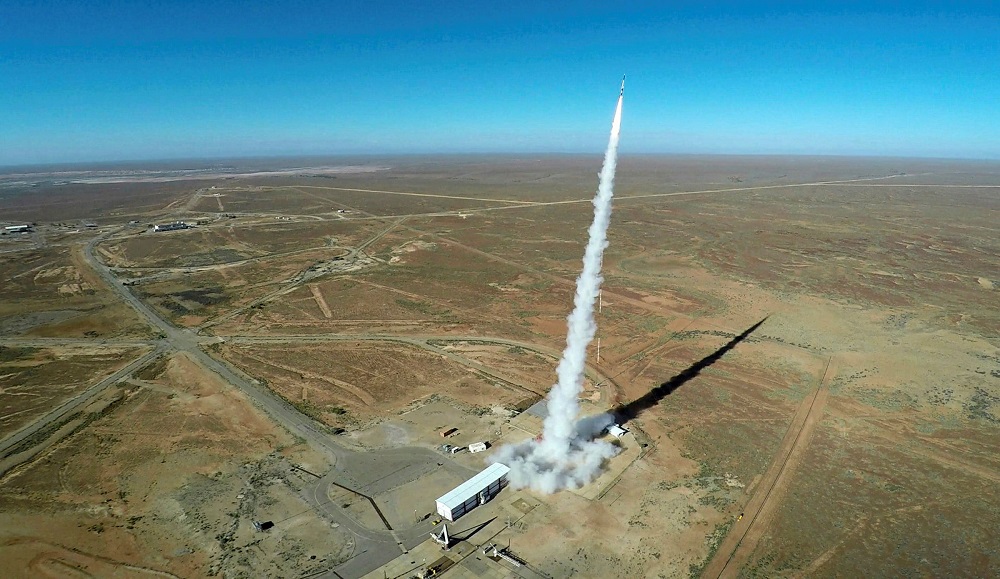
The global race is on to secure and dominate critical technologies and the workforce talent and capital markets that support their development. Whichever country or group of nations succeeds will have the military and strategic edge. The quiet launch on 1 July of the Advanced Strategic Capabilities Accelerator within the Defence Department seeks to position Australia in this race.
ASCA has the right technology priorities. It’s seeking to develop the advanced technologies included under Pillar 2 of the AUKUS agreement—hypersonics, autonomous system and quantum—as well as directed energy, information warfare and long-range fires. However, in seeking to make new discoveries in these areas it’s only being resourced with existing funds from within Defence—up to $3.4 billion over the next decade.
For ASCA to achieve its goal of delivering technology into the hands of Australian military personnel at speed, it should sharpen its innovation focus, integrate with Australia’s innovation ecosystem and attract additional capital from the private sector.
Given that ASCA is absorbing Defence’s business-as-usual defence innovation bodies, the Defence Innovation Hub and the Next Generation Technologies Fund—unlike in the US and UK, where the functions are independent—it appears to be tasked with both acquiring existing technologies for defence application and fostering disruptive innovation. That’s a challenging brief, perhaps made even more difficult by the accelerator being located within the Defence bureaucracy.
Different skillsets and organisational cultures underpin advancements in different types of innovation, whether that’s applying technology to capability; disruptive, breakthrough discoveries; or incremental innovation. Ideally, Australia would mirror its AUKUS partners and have two separate functions, one to accelerate existing capabilities and one to nurture the disruptive innovation ecosystem.
The government’s framing of ASCA is to bring together elements of the US Defense Advanced Research Projects Agency, the US Defense Innovation Unit and US Strategic Capabilities Office. Their advantage over the Pentagon’s broader defence innovation work is that they focus on creating disruptive, breakthrough technologies. DARPA’s high-risk, high-reward strategy has led to technological innovations, including the internet, GPS and phone applications, that have changed the world.
Taking lessons from these US initiatives, ASCA will need to consult and engage broadly with non-traditional industries and innovators. Contracting to the usual defence primes may only lead to incremental advances instead of breakthrough innovation. Developing a technology isn’t just a matter of identifying it in the commercial world and bringing it into Defence to integrate with military systems; it requires a strong understanding of the technology landscape.
Each of the advanced capabilities comprises a complex ecosystem that includes technical capabilities, university research, technology workforces and defence industry bases. As a case in point, Australia excels in quantum science and technology, but that is the result of cross-pollination between different stakeholders over decades, supported by significant investment in civilian research. The UK is also grappling with this challenge and has launched an open call for innovation for its Defence and Security Accelerator. ASCA could offer something similar to get a sense of Australia’s innovation landscape.
Ultimately, with the genesis of innovation largely residing with industry, not government, ASCA will need to break new ground for Defence in integrating with Australia’s innovation ecosystem.
If ASCA can narrow its focus to disruptive innovation and integrate with Australia’s innovation ecosystem, it will need to increase funding in future years. Compared with Australia’s Defence Science and Technology Group, which receives $408 million annually, ASCA’s $340 million annual budget appears substantial. But it costs millions upon millions over years to develop technologies from concept to capability. That’s where ASCA will need to supplement its public funds with private capital to achieve its goals.
ASCA’s apparent approach of pursuing technology application and innovation of all kinds through the same funding pool also presents a mixed message for investors. Different risk profiles motivate different investors—venture capitalists, for example, are interested in game-changing disruptive tech and banks and private equity are more comfortable with safer, incremental innovation. More clearly defining ASCA’s focus on disruptive, breakthrough technologies will clarify the investment opportunity.
Attracting private finance would also require a cultural shift for the defence organisation. Partnering with venture capital or private equity would represent a new dawn for the organisation. Defence would need to demonstrate a higher level of risk tolerance both in outlining its mission requirements to selected partners and accepting multiple failures and financial loss at a rapid pace, known as ‘fail fast’. This will be a huge challenge for Defence, which could be partly addressed by hiring or seconding industry executives into ASCA roles.
It’s in the national interest that ASCA succeed. An investment of $3.4 billion of public funds is substantial, but, more importantly, the strategic circumstances require Australia to make headway in this area. At the starting gate, ASCA should be given a mission focus to foster disruptive innovation, engage with Australia’s innovation ecosystem and attract private capital.

